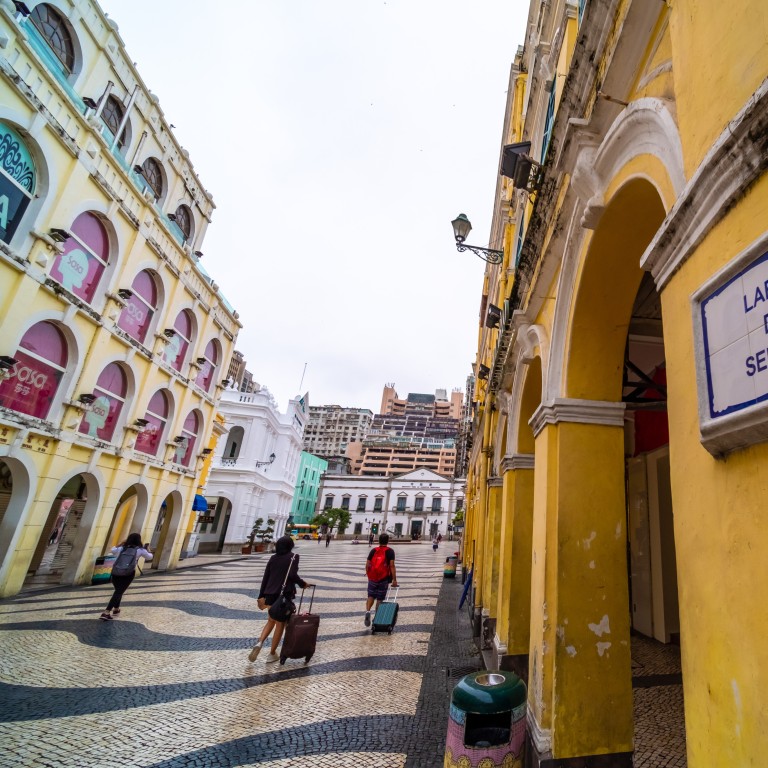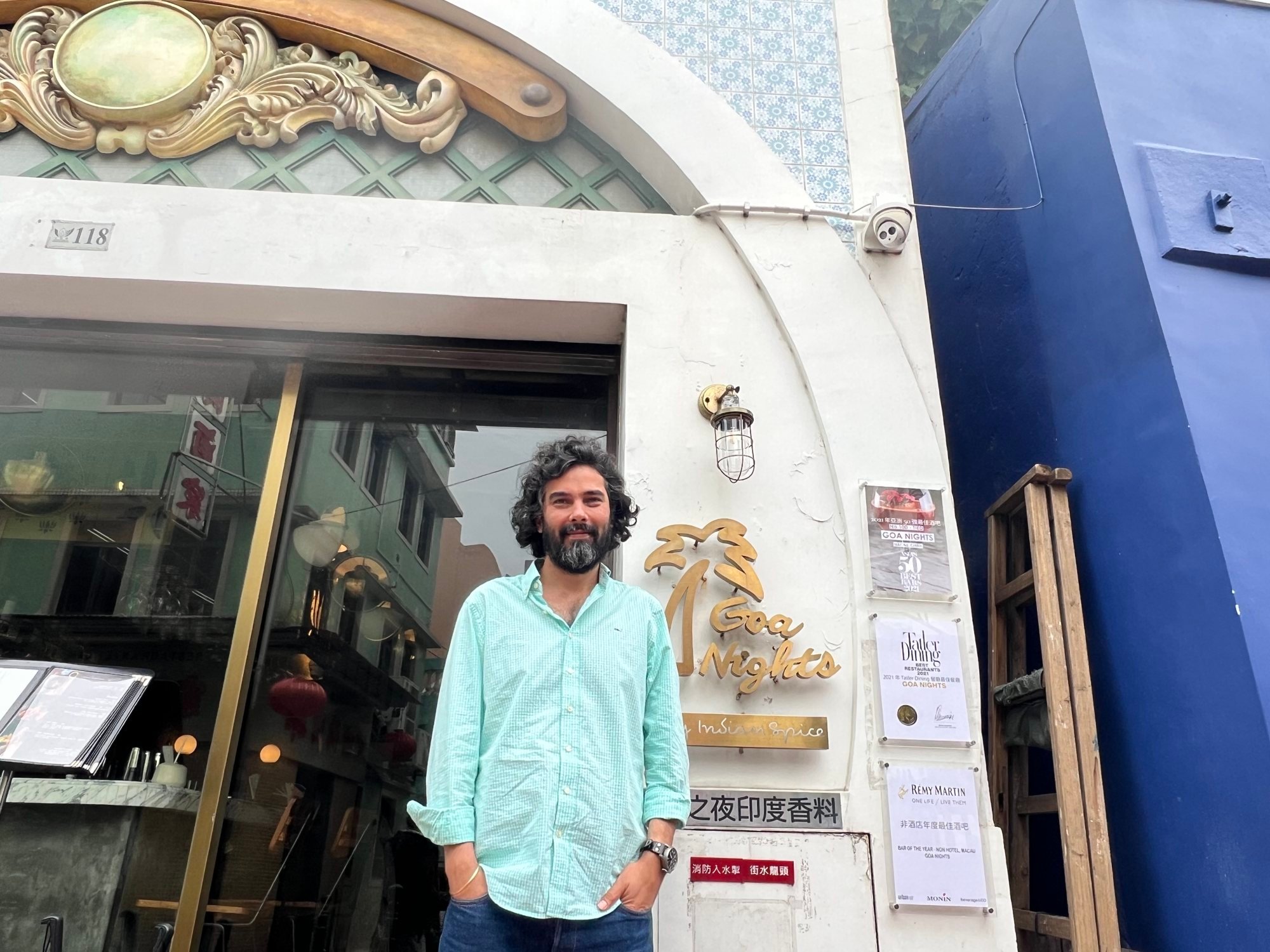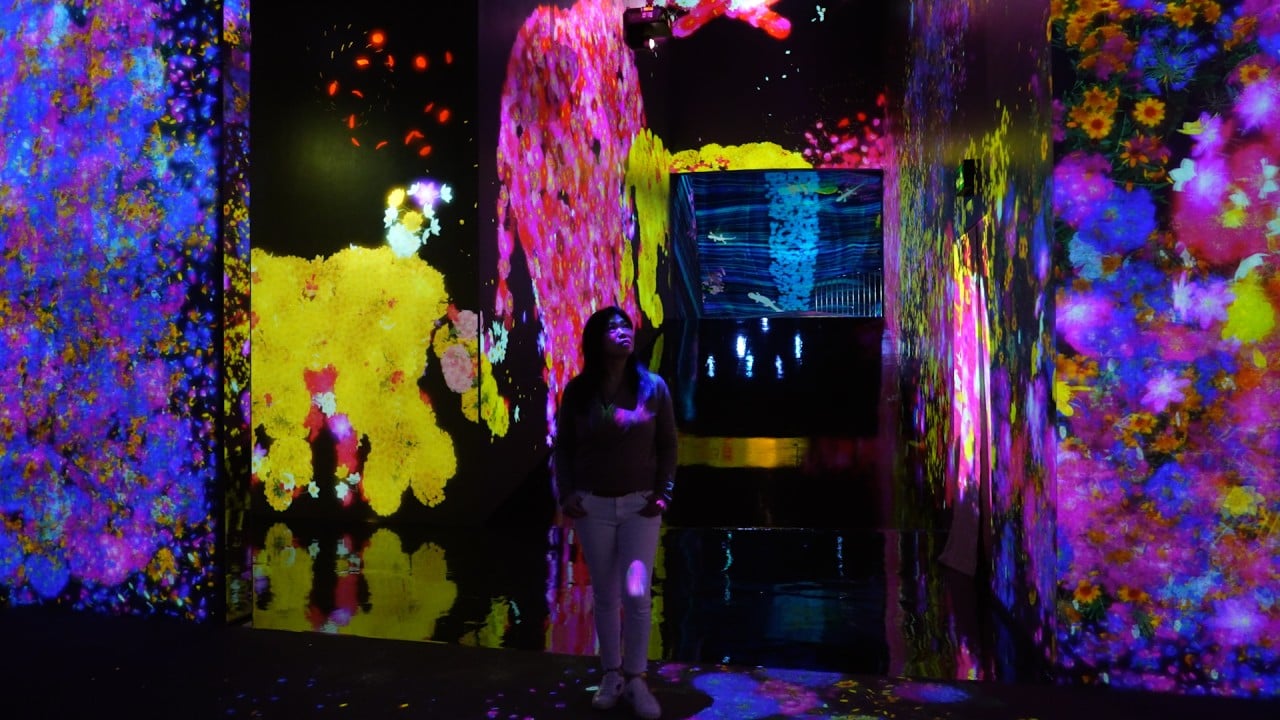
How gambling hub Macau could cultivate stronger economic ties between China and Portuguese-speaking countries
- Authorities are keen on building upon Macau’s historical links to Portugal as a means to bolster economy without depending solely on the 170-year-old gaming sector
- Beijing wants to foster bilateral economic relations with Portuguese-speaking countries such as Brazil, and Macau is uniquely placed to help
On Easter Sunday, Antonio Trindade lunched with visiting family in an old Portuguese-style section of Macau rife with pastel-coloured shophouses – comfortably isolated by a hillock and lake from some of the many grandiose casinos that give the Asian gaming hub its international fame.
Those are the same casinos that took a massive hit during the pandemic, when Macau closed its borders and was suddenly faced with the stark realisation that it had not done nearly enough to diversify its economy away from gambling.
Fortunately for the casino hub, Macau’s past as a former Portuguese colony could hold the key to not only economic relief, but also better relations between mainland China and Portuguese-speaking countries.
And Trindade, who lives in the territory located about an hour from Hong Kong by ferry, said he already sees the “shift” happening.
China, Brazil to sign more than 20 deals during Lula’s state visit this week
Portuguese himself, the president of infrastructure operator CESL Asia says his company – with 500 local staff members – has been approached by government representatives about building on Macau’s historical links to Portugal as a means to bolster “economic retention” without depending solely on the 170-year-old gaming sector.
“The platform is already there” for Macau to leverage its history to connect China with countries such as Portugal and Brazil, Trindade said, citing examples such as the special administrative region’s Portuguese legal system, and that bank transfers to Portuguese-speaking countries are relatively easy. Portuguese is also an official language in Macau and appears on public signage throughout the city.
“The Macau government has been worried for some time about the lack of diversity in the region’s economy, and the zero-Covid policy,” said Guilherme Campos, a manager with business advisory firm Dezan Shira & Associates, referring to the economic impact of China’s restrictive coronavirus-control measures that lasted nearly three years.
Those Covid controls, said the Shenzhen-based Portuguese native who once lived in Macau, “showed how potentially fragile the economy is without its revenue from gambling and complementary sectors”.
The central government’s trade initiative, which links economies around the world into a China-centred network, was launched a decade ago. It supports Chinese-sponsored infrastructure projects in 151 countries.
“Macau is small, but its role should not be ignored,” said Kou, who is also a deputy to the National People’s Congress.
China realises small is beautiful as Belt and Road Initiative turns 10
Some Portuguese products can be “used as raw materials” and processed in Macau for sale in mainland China, Kou said in his proposal, noting that the process would “drive the economic development of Portugal and benefit other EU countries”.
Campos also pointed out that Macau has relatively low corporate income taxes – a possible draw for European investors with business in Asia.
Economists say that, if Kou’s plan gets approval, officials from Beijing will probably instruct Macau to work directly with Portuguese-speaking nations in arranging new belt and road projects. Projects operating today include seaports, airports, highways and power plants.
Portuguese-speaking Brazil, the world’s 10th-largest economy, does more than US$100 billion in annual trade with China. China is pushing four Portuguese-speaking African nations to accept more Chinese-sponsored infrastructure projects as well.
The trade of goods between China and all Portuguese-speaking countries totalled US$214.8 billion last year, Macau government data shows.
“Designating Macau as a go-to place for Portugal and Brazil – that’s a possibility,” said Edwin Lai, director of the Centre for Economic Development at the Hong Kong University of Science and Technology.
Portugal formed close economic and political ties with Macau in the 1500s, and in 1887 the European nation reached an agreement with China to colonise it. The city was returned to China in 1999 as a special administrative region with its own immigration policy, currency and laws.
“China wants to have good relations with Brazil, and with the geopolitical situation right now, China needs every developing country,” Lai said.
China already owns parts of a Portuguese national electricity company and a share of Portugal’s electricity grid, while Chinese conglomerate Fosun International has a stake in one of Portugal’s largest commercial banks.
“Macau will keep itself busy in the coming years and decades by increasing its connections with these Portuguese-speaking countries, for its own benefits and on behalf of China,” said Victor Gao, vice-president of the Centre for China and Globalisation in Beijing.
Macau’s outlook clouded by gambling risk, climate shocks, IMF says
Non-gaming tourism, particularly targeting arrivals from mainland China and Hong Kong, is shaping up as another antidote to the reliance on casinos. Portuguese heritage is at the core of non-gaming tourism.
Families often drop by a casino for an hour or so before spending the next day or two on attractions such as Taipa Village, said Pamela Chan, associate director with the Taipa Village Destination Limited.
“A growing trend now is the family, the kids, the grandpa and grandma – they come in big groups,” said Chan, whose company owns several properties in the village.
Since Macau fully reopened its borders in February, tens of thousands have visited Taipa Village on busier weekend days. They eat its signature egg tarts and Portuguese fried rice with tomato sauce. On Easter, a Brazilian drumming and dance troupe put on a free concert in the village.
Macau can benefit from its status as a free-trade port and its vast hotel complexes
For children, who aren’t allowed in casinos, the city runs a panda zoo and a Grand Prix car-racing museum. Two casinos also operate water parks.
Macau Chief Executive Ho Iat Seng said in 2021 that the city would develop “tourism plus” by integrating travel with exhibitions, healthcare, e-commerce and the creative industries. Ho was discussing Macau’s then five-year economic blueprint that runs through 2025.
“Tourism and [hosting] meetings, conferences and exhibitions make sense for Macau, given its unique culture as a former Portuguese colony with European-style architecture and cuisines,” said Naubahar Sharif, a professor and acting head of the Division of Public Policy at the Hong Kong University of Science and Technology.
“Macau can benefit from its status as a free-trade port and its vast hotel complexes to hold international exhibitions and sports and entertainment events,” he added.
How can China’s Belt and Road Initiative thrive when its members are at war?
Macau has 132 hotels with about 42,000 rooms, from European-style inns on the territory’s wooded southern tip to Las Vegas-style sprawls such as the Sands and the City of Dreams.
Macau’s land border with the mainland Chinese city of Zhuhai already facilitates a steady inflow of mainland tourists. Some workers in Macau even live in Zhuhai, where rents are lower.
“Possibly, we could see similar synergies between Macau and Zhuhai, should the government focus on incentives and programmes to link the two regions,” said Zennon Kapron, the Singapore-based director of financial industry research firm Kapronasia.
But Macau also faces a labour shortage, high rents and a lack of available land that make doing business there more difficult.

Goa Nights, the five-year-old, 36-seat restaurant where Trindade and his family ate on Easter, is about to lose a waitress and faces a two-week process just to obtain permits to hire a replacement, restaurateur Gagan Sethi said.
Hotel rooms remain scarce because the operators can’t always find enough staff to work all of the floors, he said, and a lack of taxi drivers sometimes generates long lines. About 45,000 foreign workers left Macau during the pandemic, according to news sites in the territory.
Sethi himself, like many other foreign nationals, wasn’t allowed to return from home leave under the pre-2023 Covid-19 controls. And a number of foreign workers, such as Filipinos, who were barred from re-entry, moved to less restrictive offshore labour markets, he said.
“Macau has great potential – something unique going on,” Sethi said, referring to the Portuguese heritage and steady flow of international arrivals. But, he said: “You need a workforce that can operate on international standards.”
Additional reporting by Mia Nulimaimaiti


